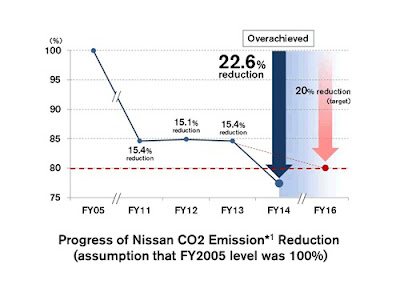If you’ve waited until now to
order your Porsche 918 Spyder, you may be out of luck. The last
edition of the hybrid sportscar came off the assembly line last week at
Stuttgart-Zuffenhausen, after 21-months of continuous production. While the 918 Spyder built
on Porsche’s rich legacy of finely crafted driving machines, the car
established a benchmark upon which future automobiles will be based. Even the
production techniques of the 918 Spyder revolutionized how cars are designed
and built, with Porsche filing patents on myriad processes and specialized
assembly tools.
The 918 Spyder was a
study in high technology, generating a total of 887-hp from its propulsion
systems. The car set a record 06:57 lap time on the North Loop of the
Nurburgring for street-legal vehicles running on production tires—which still
stands. Oh, and it got 67-mpg with its plug-in hybrid technology.
Automobile manufacturers are making great strides in demonstrating their ability to not only produce more energy efficient cars and trucks, but also more efficiently build their new vehicles. Nissan, in particular, is being recognized for increasing vehicle production while simultaneously reducing CO2 emissions and improving sustainability for fiscal year 2014. The company says it has cut CO2 emissions 22.6% below 2005 levels, exceeding its corporate goal of 20% for the period.
The Nissan Leaf is the
cornerstone of the company’s Nissan Green Program 2016, a four-pronged plan
addressing zero-emission vehicle market penetration, expansion of
fuel-efficient vehicles in its product line, minimization of its corporate
carbon footprint, and minimization of new natural resource usage.
The company says it achieved a 36.4% improvement in CAFE*2 fuel economy standards two years ahead of schedule, and has reduced its corporate carbon footprint by shifting to more rail transports for shipping.
The Diesel Trucking sector is also tooting its
air horn over improved fuel mileage and reduced greenhouse gas emissions, thanks
to newer technology investments. The Diesel Technology Forum is one of those
industry advocacy groups tasked with spreading the gospel for its vested
interests.
The DTF says more than 37% of all diesel medium- and heavy-duty commercial trucks in the US are now equipped with newer technology diesel engines, with 22% operating with the cleanest technology available.
 Allen Schaeffer, Executive Director of the Forum, says, “Our newest analysis of the benefits of the new
technology diesel engines conducted by the Martec Group from Detroit found in
Classes 3-8 vehicles, that those on the road from 2007 -2014 saved 880 million
gallons of diesel fuel, and nine million tons of CO2.”
Allen Schaeffer, Executive Director of the Forum, says, “Our newest analysis of the benefits of the new
technology diesel engines conducted by the Martec Group from Detroit found in
Classes 3-8 vehicles, that those on the road from 2007 -2014 saved 880 million
gallons of diesel fuel, and nine million tons of CO2.”
Schaeffer says the
new technology diesel engines contributed substantially to the nation’s clean
air progress, “by reducing 1.45 million tons of NOx from 2007-2014, and 39,500
tons of particulate matter.” Schaeffer says emissions from today’s diesel
trucks are near zero, thanks to more efficient engines, better emission control
technology, and the abundant availability of ultra-low sulfur diesel fuel.
Never discourage your kids from playing video
games. David Goss of Missouri, and Colton Miller from Indiana, were the
finalists in Mazda’s MX-5 Challenge, co-hosted by Microsoft at the Electronic
Entertainment Expo in Los Angeles last week. The competition was a bifurcated
contest to push both the all-new Mazda MX-5 Miata, and Microsoft’s Forza Horizon
2 for its Xbox gaming console business.
Goss and Miller spent hours and hours behind the virtual
wheel of the new Miata, training for the competition, which promised a new roadster—real,
not virtual—for the winner. Goss defeated Colton, but Mazda wanted no one to go
home empty handed, awarding both competitors with the keys to their own shiny,
new Miata’s.
As a Miata driver, I can confirm there are few
things more intimidating than seeing the grille of a large truck looming in the
rear view mirror. FCA USA this week is launching production of it’s all new
2015 Ram 1500 Rebel at its Warren Truck Assembly Facility.
Yeah, it’s pretty intimidating,
with the blacked-out grille, billet silver “RAM” letter badge, and a higher
ride height.
The Rebel boasts skid plates, tow hooks, 33-inch
tires, and a manly interior, starting at under $43,000.




No comments:
Post a Comment